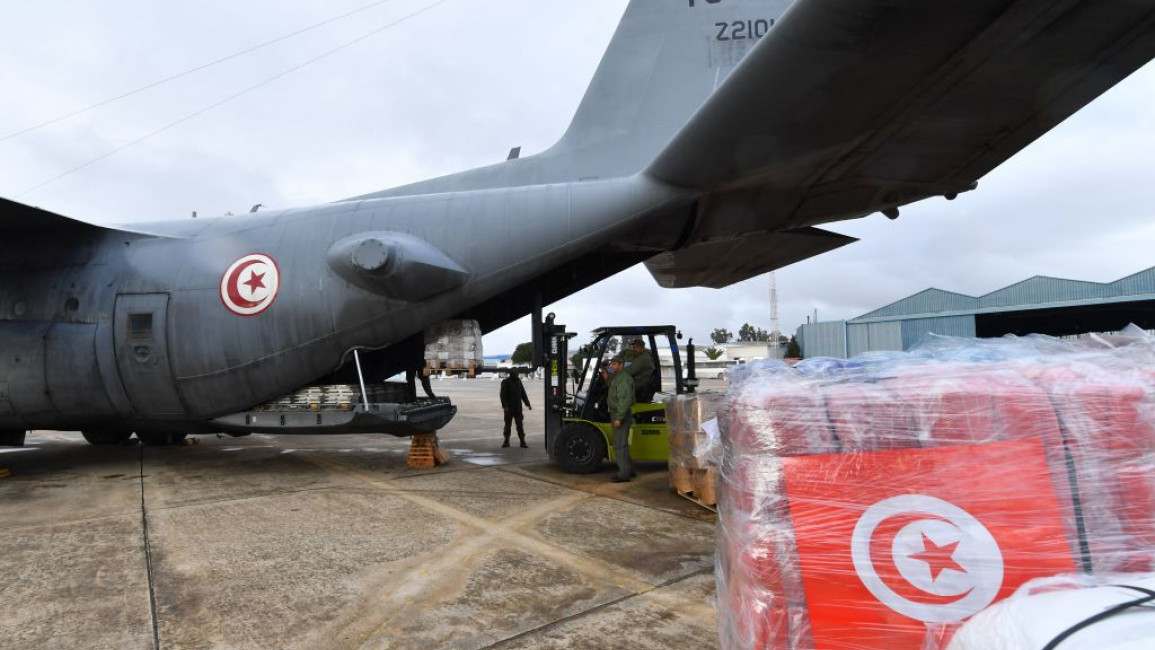North African states rush to send aid to Turkey and Syria after deadly earthquake
North African countries are sending aid and rescue workers to assist recovery efforts in Turkey and Syria after Monday's early morning 7.8-magnitude earthquake killed more than 11,000 people.
On Monday, the Algerian government sent 17 tons of intervention equipment and "a first group of 89 agents specialising in major risk management" to Turkey, according to Civil Protection Colonel Farouk Achour.
On Tuesday, Algeria extended its aid canal to Syria, pumping around 115 tons of pharmaceuticals, foodstuffs and tents to the affected cities.
"An Algerian civil protection team consisting of 86 rescuers went to Syria at night," Algeria's interior minister Ibrahim Murad told local media Tuesday. He added that an additional 95 tons of aid packages were sent to Turkey.
Meanwhile, Tunisia sent 41 rescue workers to Turkey and 19 to Syria.
President Kais Saied's cabinet said it will further send around 15 tons of aid, mainly blankets, food and infant formula, 11 tons of which will go to Turkey and 4 to Syria.
From Libya, Prime Minister Abdel Hamid al-Dabaiba ordered the "immediate" dispatch of 55 civil protection and military engineering rescuers and five dogs.
For its part, the Moroccan kingdom pledged to send urgent medical and logistical aid to Turkey, according to local media. However, Rabat's Ministry of Foreign Affairs has yet to issue an official statement on the matter.
Rabat's embassy in Ankara said one Moroccan national, a woman in her fifties, died in the earthquake in Antakia, Turkey. Other North African countries did not announce any official numbers regarding their citizens who were in the impacted cities.
With no official statements available, Moroccans account for around 20,000 of the total North African diaspora in Turkey, estimated at more than 30,000.
Awaiting official aid from Rabat, the Morocco Foundation, a community of Moroccan diaspora in Turkey, extended help to Moroccans in affected areas.
"A team of Moroccan volunteers has been formed, in coordination with Turkish civil society institutions, to communicate with those affected and communicate their numbers to the Moroccan Embassy in Ankara," Ayoub Salem, President of the Morocco Foundation, told state news agency SNRT.
Speaking to members of the Moroccan diaspora in Turkey, fear and terror reign among residents in the unaffected areas. "I live in Aderna. We are not affected but we are terrified. I prepared an emergency bag with all my essential papers so I will be ready if something happened," Wiam told The New Arab.
Wiam said her family urged her to leave the country for Morocco for her safety but she could not due to work attachments. Many Moroccan diasporas, mostly students and employees, are unable to leave despite the urges of their worried families in Morocco.
The recent earthquake triggered a dark reminder among Moroccans of the 1960 Agadir quake that killed a third of the city's population (the death toll ranged from between 12,000 to 15,000) and left the city in ruins for years.



